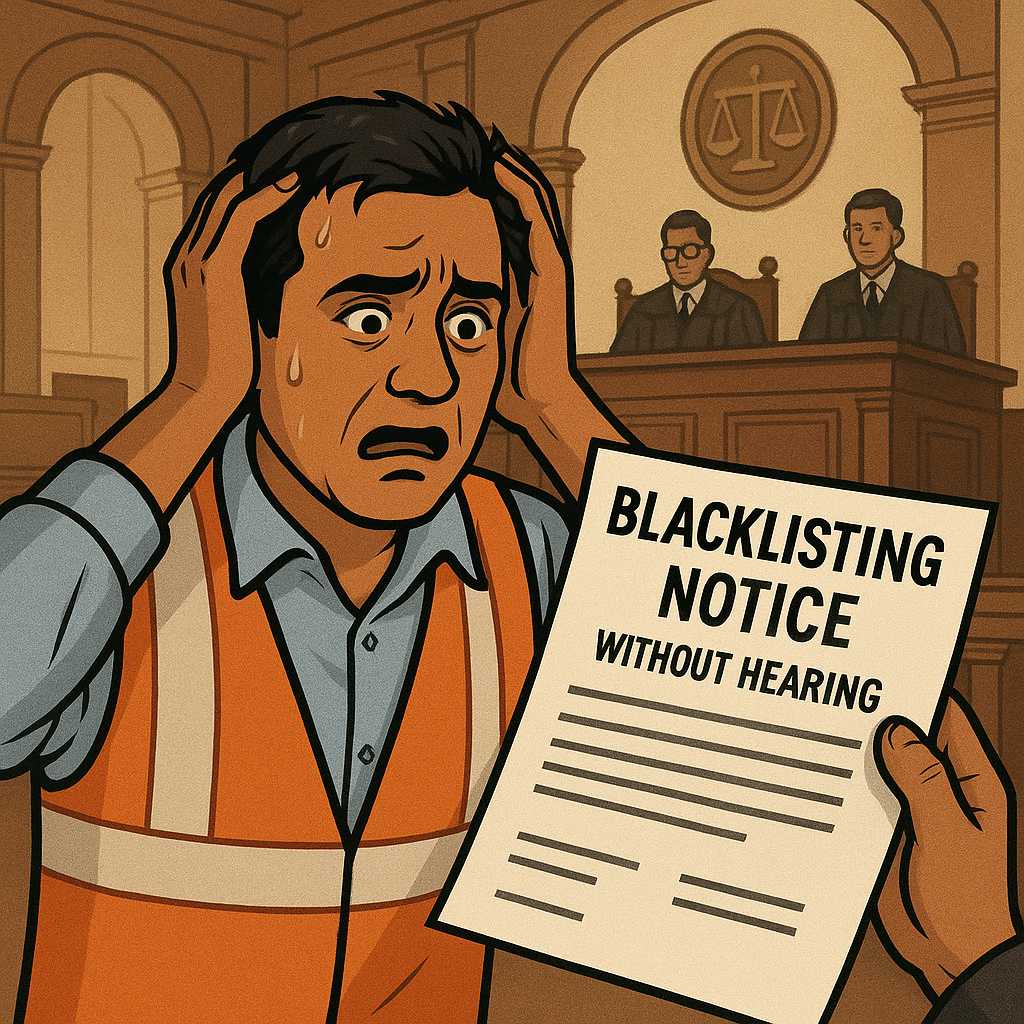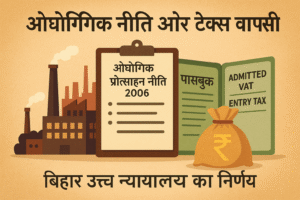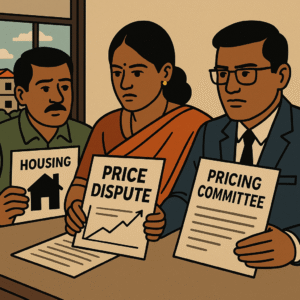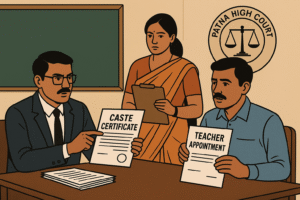Simplified Explanation of the Judgment
In a significant ruling reinforcing procedural fairness in administrative actions, the Patna High Court has quashed a 10-year blacklisting order issued against a contractor company by the Rural Works Department of Bihar. The Court held that the order was passed without issuing a prior show-cause notice to the affected party, violating the principles of natural justice.
The petitioner, a private construction company, challenged the department’s blacklisting order dated 15 July 2021. The blacklisting was purportedly for the petitioner’s failure to complete a road construction project awarded in 2008–09. However, the petitioner argued that the contract was already concluded in 2016, and that the department never issued any notice proposing blacklisting. Additionally, the impugned order was uploaded on the government website without even being served on the petitioner.
The Hon’ble Chief Justice and Hon’ble Mr. Justice S. Kumar of the Patna High Court ruled in favour of the petitioner and set aside the blacklisting order on two crucial grounds:
- No Show-Cause Notice Issued: The Court noted that there was no evidence that a notice had been issued or served on the petitioner, which is mandatory under the Bihar Contractor Registration Rules, 2007. This violated the principle of audi alteram partem—no person should be condemned without being heard.
- Punishment Disproportionate to Alleged Misconduct: Even if there had been some lapse on part of the contractor, imposing a 10-year blacklisting without any inquiry or hearing was found to be arbitrary and excessive.
The Court emphasized that blacklisting is not a routine administrative step—it has serious civil consequences, such as exclusion from future government tenders and damage to business reputation. Such an action amounts to a “civil death” for the business entity involved. Therefore, a fair and reasonable procedure must be strictly followed.
Citing a series of judgments from the Supreme Court, including Gorkha Security Services v. Government of NCT of Delhi and Vetindia Pharmaceuticals Ltd. v. State of Uttar Pradesh, the Court reiterated that:
- Blacklisting must be preceded by a valid show-cause notice.
- The affected party must be given an opportunity to respond.
- The final decision must be a reasoned one and proportionate to the alleged default.
Importantly, the Court directed that the petitioner shall appear before the department on a specified date and be served with a fresh or old show-cause notice. The department must then pass a fresh order, if needed, within a fixed timeline. Meanwhile, the contractor is allowed to continue participating in department tenders.
Significance or Implication of the Judgment
This decision holds immense importance for all contractors and vendors dealing with government departments in India. The ruling clearly asserts that:
- Government bodies cannot bypass due process, even in administrative matters like blacklisting.
- The rule of law and natural justice apply to every action that adversely affects individual rights, business opportunities, or reputation.
- Departments must document, notify, and communicate reasons before taking harsh steps like long-term debarment.
For the general public and stakeholders, the judgment assures that the courts will not allow arbitrary decisions to go unchallenged, particularly when livelihoods and reputations are at stake.
Legal Issue(s) Decided and the Court’s Decision with Reasoning
- Was the petitioner served a valid show-cause notice before blacklisting?
- No. The Court found no record of such a notice being issued or served. This violated natural justice principles.
- Is uploading a blacklisting order online sufficient communication?
- No. The Court held that the order must first be served directly to the affected party before it is published publicly.
- Was the 10-year blacklist proportionate?
- No. The Court held it to be excessive, especially since the contract in question ended years earlier and the petitioner was not given a chance to respond.
- What procedure must be followed before blacklisting?
- Issuance and service of show-cause notice
- Fair opportunity to reply
- Reasoned and proportionate order
Judgments Referred by Parties
- State of Orissa v. Balram Sahu, (2009) 2 SCC 652
- Patel Engineering Ltd. v. Union of India, (2012) 11 SCC 257
- Gorkha Security Services v. Govt. of NCT of Delhi, (2014) 9 SCC 105
- Kulja Industries Ltd. v. BSNL, (2014) 14 SCC 731
Judgments Relied Upon or Cited by Court
- Vetindia Pharmaceuticals Ltd. v. State of Uttar Pradesh, (2021) 1 SCC 804
- Natwar Singh v. Director of Enforcement, (2004) 13 SCC 255
- SEBI v. Akshaya Infrastructure Pvt. Ltd., (2014) 11 SCC 112
- H.L. Trehan v. Union of India, (1989) 1 SCC 764
Case Title
M/s Memerej Construction Pvt. Ltd. v. State of Bihar & Ors.
Case Number
Civil Writ Jurisdiction Case No.1097 of 2022
Coram and Names of Judges
Hon’ble the Chief Justice Sanjay Karol
Hon’ble Mr. Justice S. Kumar
Names of Advocates and Who They Appeared For
- Mr. S.D. Sanjay (Senior Advocate) — For the Petitioner
- Mr. Mohit Agarwal, Mr. Akshat Agrawal — Advocates for Petitioner
- Mr. Kumar Alok (SC-7) — For the Respondents
Link to Judgment
If you found this explanation helpful and wish to stay informed about how legal developments may affect your rights in Bihar, you may consider following Samvida Law Associates for more updates.








